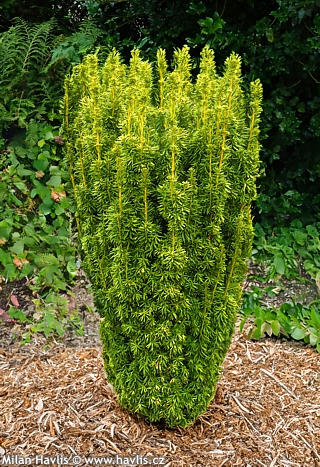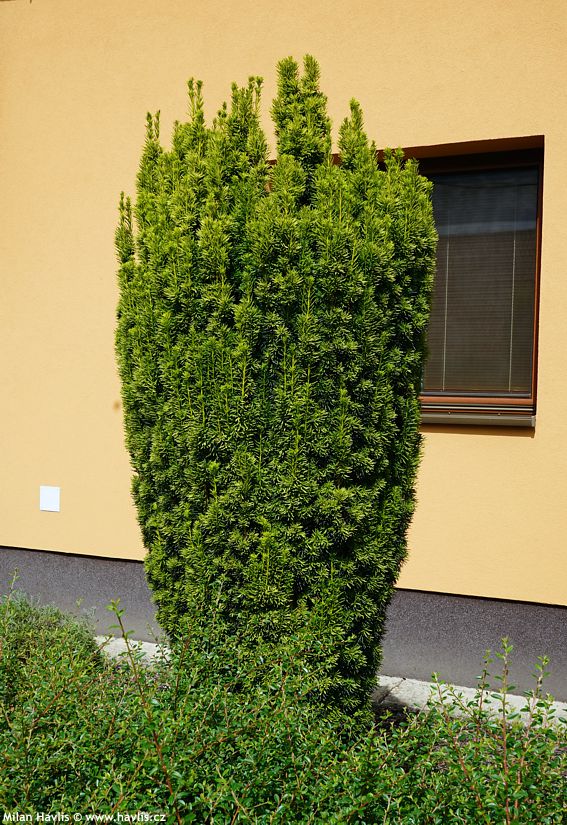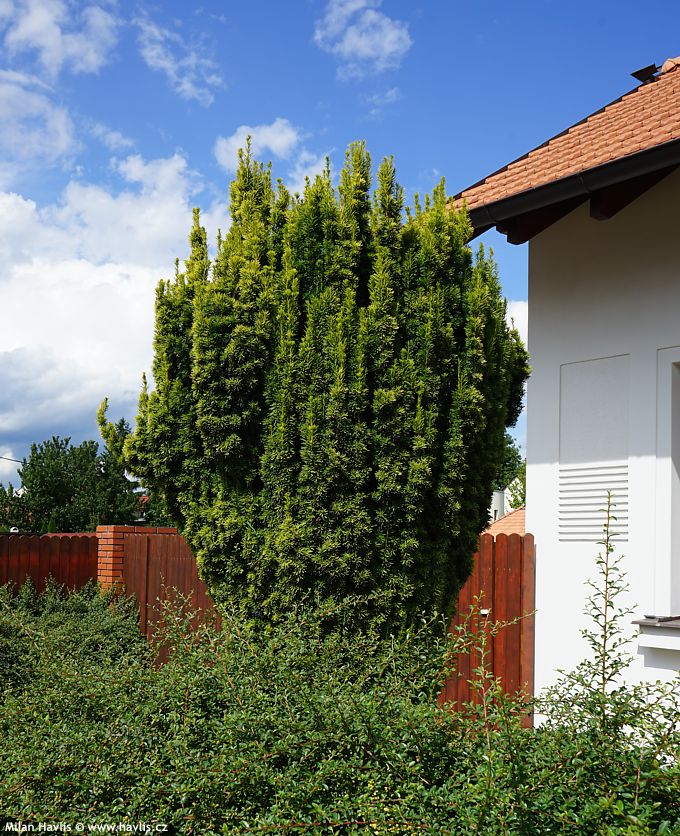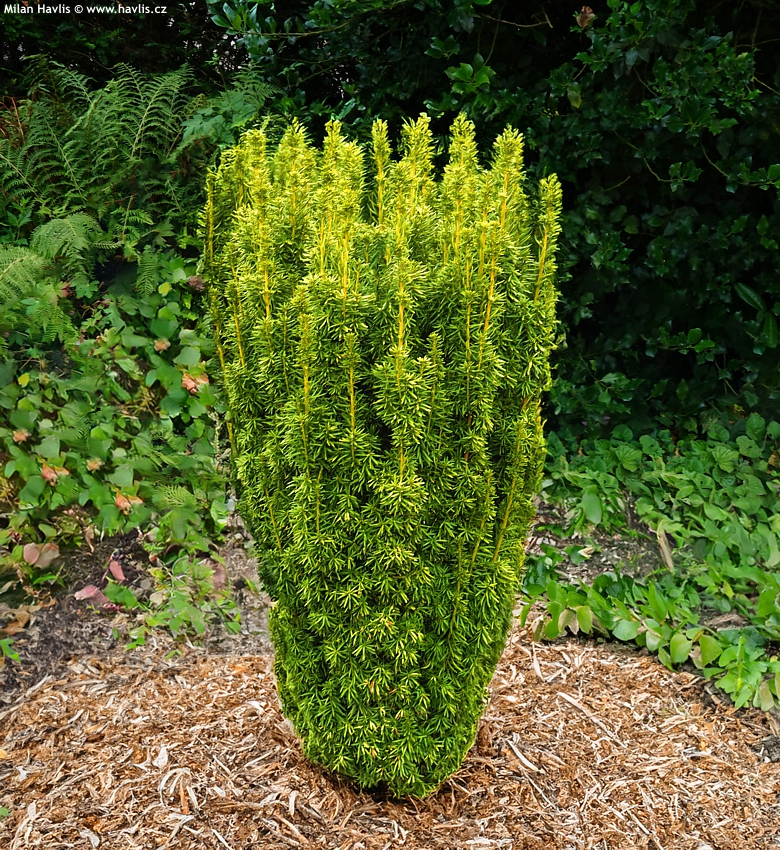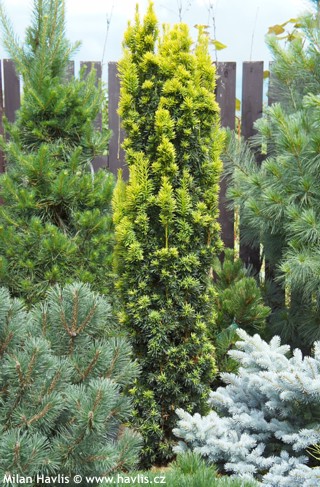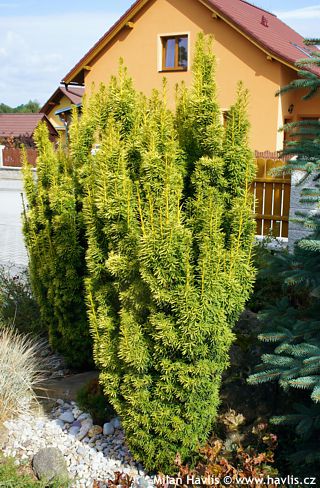Taxus baccata 'DAVID' common yew
size/type
medium-sized shrub,taller shrub
usual height
2-3m
usual width
0,5-1,5m
leaves
evergreen conifer
colour of leaves
location
full sun to shade
soil type
any (acidic to alkaline)
soil moisture requirements
evenly moist but well-drained
USDA zone (lowest)
5 (down to -29°C)
winter protection
for zone 5+6

for zone 7

categorized
Taxus
Yews could be called common shrubs, where common not only means omnipresent but also dull. Well, perhaps for someone. We see yew and predominantly its varieties as very useful and attractive features of gardens of almost any size. They vary by size, shape and even foliage colour. Common yew is a native European plant with natural occurrence from the British Isles to southwest Asia and northwest Africa.Description of the plant:
David is a columnar variety of common yew with golden needles introduced in 1987. It grows slowly into a dense shrub with strictly upright, congested branches forming relatively slender features with a slightly open top. New needles are flushed golden yellow or completely yellow, predominantly at the top as opposed to greener bottom. David yew does not suffer from snow damage and tolerates harsher frost than the species. Its upright growth can be used in any type of garden where a vertical feature is required. 15-year-old plants reach only about a meter tallNow a few words about its toxicity. The whole plant is slightly poisonous for humans but extremely poisonous for horses. Its beautiful red fruits are also said to be dangerous for people but the truth is that only the seeds contain a certain amount of substance that could be dangerous only if the seed shell is crushed and the contents chewed. But this won’t happen since it is so bitter that everyone will spit it out immediately. As a matter of interest the flesh of the berries is found sweet and delicious for many and if the seed is removed you can expect no harm. Also, tests proved that unchewed seeds will go through the digestive system causing no harm. Still, our final suggestion is to use this plant as a decorative item in your garden, not as a dessert.
Yews are easy to grow. They can take almost any soil type from acidic to alkaline, just make sure the soil is not waterlogged. They will do well in full sun as well as shade. They are commonly pruned or trimmed to shapes and even tolerate hard pruning into old wood. Hardiness of individual varieties may vary greatly, David is one of the hardiest and survives at least -29 °C (USDA zone 5) and is suitable for planters with good drainage.
Last update 03-02-2024
QUICK PRICE OVERVIEW
CURRENTLY SOLD OUT
WANT TO TRY A SIMILAR PLANT?












